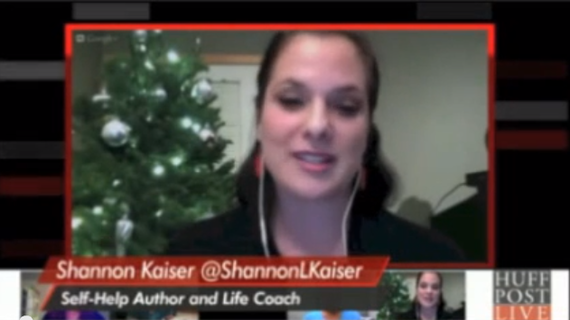Last week I baked holiday cookies with my best friend. When it was time to leave, I was hoping I could leave my Christmas tree and gingerbread shaped cookies with her family. I enjoyed the process of creating and decorating but did not intend to take my addiction home with me.
But my friend had different plans for my little gingerbread men. As she pushed the plate full of sweet heaven into my face, she said enthusiastically, "Take your cookies with you," and my triggered mind began to react.
No one usually forces a needle into a recovering drug addict's arm; in fact, drug addicts in recovery are usually celebrated and supported by non-user friends and family. But for food addicts, we come face to face with our temptation every single freaking day.
For sugar addicts and food addicts every day feels kind of like Christmas Eve for a young child. Excitement yes, but often tainted with a lonely anticipation, wondering if we will get what we truly want. This anxiety is mixed with a quiet anger because we can't dip into the treats yet.
To survive in life we must eat, the food won't ever go away. So we do our best to avoid certain foods and we try with all our might to make healthy choices every day, moment by moment. But when the holiday season hikes into town it often catches food addicts like a deer caught in the headlights, surprised, and paralyzed with wonder and fear.
Stress is a big contributor to emotional overeating. Have you ever found yourself mindlessly scarfing down a tub of ice cream while you over-analyze the details of your latest romantic relationship, or chowing down on chips and guacamole in front of your computer as you furiously work to make a super tight deadline?
This is the story of my life!
As a recovering food addict, I've had my fair share of on-again, off-again love affairs with my body and my relationship to food. Some days I eat a healthy diet and practice good habits, others, a client calls with a tight deadline, I get bad news, or I am trying to start a new creative venture, and the result, for me, like many, is weight gain.
The number on the scale seems to always be in direct proportion to the amount of stress I feel in my life. If I am overwhelmed and stressed out, I tend to gain weight. If I am balanced, practicing healthy habits, and taking emotional care of myself, my body returns to a lean, keen, vibrant machine. Over the past few years I have worked hard to overcome my food addictions. I have looked at my habits to try to recognize how emotional overeating can affect my livelihood. But for most of us, during the holidays, stress eating tends to skyrocket. This is why most people gain 7-10 pounds between Thanksgiving and New Year's.
If you stress eat during the holidays these tips can help.
Step 1: Swap Out Your Comfort Fixes
When we are chronically stressed, we crave "comfort foods," such as a bag of potato chips or a gallon of ice cream. These foods tend to be easy to eat, highly processed, and extremely high in fat, sugar, and salt. Stress will mess up our brain's reward system. Cortisol, and that may cause us to crave more fat and sugar. Ever wonder why we crave comfort foods? We want to feel safe and secure, so instead of turning to these empty calories, turn to other methods of feeling secure and cared for. Wrap yourself up in a cozy sweater with your favorite book or a cup of tea, call a dear friend, or take a warm bath with Epsom salts. All of these distractions can help you get the real fix you crave, security and love, without loading on the pounds.
Step 2: Be Aware of Your Triggers
Family, the dog barking, your boss looking at you funny; during the holidays everything can make you on edge, especially if you are an emotional overeater. Even when you think you have your cravings all under control, a trigger could set you off. All of a sudden you have polished off the candy bowl in the front office, and you feel guilty because your co-workers are asking where all the chocolate went. Knowing what your triggers are will help you keep your emotional overeating at bay.
Step 3: Don't Take It Personally
Maybe your co-worker didn't mean to say that thing to you in that tone at the holiday party. Just because your significant other told you look tired, it doesn't mean they think you have let yourself go. If someone says something to you that feels unpleasant, recognize that it could be a reflection of him or her and what they are going through, rather than about you. You don't have to react or take a defensive stance to the things people say about you or to you. Instead practice compassion and align yourself with your own values.
Step 4: Be Present
There are a lot of things happening in the world that can make us feel out of control. Often when we feel helpless, family issues, money stress and other topics we haven't addressed all year suddenly become front and center. Seeing people we don't always get to can also bring up a lot of emotional turmoil. To combat these feelings of uneasiness, practice being present and feel your emotions. Give yourself permission to be in the moment, and practice compassion for yourself and others.
When we are out of alignment with ourselves, we often turn to food and self-destructive behaviors. It is best to stay focused and aligned with your true self.
If you want to go even deeper on this topic, check out my HuffPost Live segment.
If you're struggling with an eating disorder, call the National Eating Disorder Association hotline at 1-800-931-2237.


